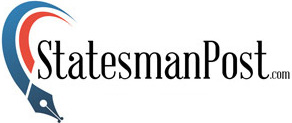
According to one commenter, the interview with JD Vance on Joe Rogan’s podcast was second only to Donald Trump. When Kamala Harris declined to participate in the podcast, JD Vance stepped in. Vance slammed major media outlets for ignoring left-wing politicians’ calls for censorship. He used Hillary Clinton’s censorship remarks as an example.
Vance aims at legacy media
In a bold move that has sparked political debate, Republican Vice Presidential nominee J.D. Vance has targeted major media outlets for what he sees as their complicity in ignoring leftist politicians’ calls for censorship. Vance’s criticism, which aired during his appearance on Joe Rogan’s popular podcast on October 31, was directed specifically at CNN and CBS.
The senator’s remarks have reignited debate over media bias and the role of major news organizations in protecting free speech. Vance’s criticism focuses on the media’s alleged failure to report on what he perceives as alarming pro-censorship rhetoric from prominent leftist figures.
BREAKING: JD Vance will be going on Joe Rogan’s podcast tomorrow. pic.twitter.com/n9hXa13Qvl
— Leading Report (@LeadingReport) October 29, 2024
Clinton’s contentious remark
The heart of Vance’s argument is a contentious statement attributed to Hillary Clinton. According to Vance, Clinton made a statement implying that censorship is necessary for maintaining control, which he believes should have made headline news.
Vance expressed surprise that such a statement from a prominent political figure did not receive widespread coverage by major news networks. This omission, in his opinion, highlights a troubling trend in which media outlets fail to hold certain politicians accountable for their positions on free speech and censorship.
The Joe Rogan Experience #2221 – JD Vance is the second greatest Joe Rogan Podcast since Donald Trump's. pic.twitter.com/ft7VCe4171
— Tom Williams (@TomWill61487260) October 31, 2024
Media Responsibility and Freedom of Speech
The Republican Vice Presidential nominee’s criticism raises serious concerns about the role of media institutions in today’s political climate. As information guardians, news organizations are expected to report on issues affecting fundamental rights, such as free speech. Vance’s claim that major networks are turning a blind eye to left-wing censorship advocacy calls into question this expectation.
His appearance on Joe Rogan’s podcast, which is known for its long-form discussions and broad topics, gave him the opportunity to address these concerns directly to a large and diverse audience. The venue selection reflects the changing landscape of political discourse and media consumption.
Broader Implications
Vance’s criticism goes beyond blaming specific media outlets. It contributes to a larger debate about the role of big tech, social media, and traditional news sources in shaping public opinion and controlling the flow of information. His remarks reflect conservatives’ growing concerns about perceived bias in mainstream media and the potential threats to free speech in the digital era.
Vance’s comments on Joe Rogan’s podcast sparked a debate, highlighting the complex interplay between media, politics, and free speech in today’s polarized environment. As Americans grapple with these issues, journalism’s role in promoting open dialogue and holding power accountable is more important than ever.
Sources:
- Vance to Rogan: Senator Blasts ‘Corporate Networks’ for Ignoring Anti-Free Speech Left
- I loaded all my guns”: Vance tells Rogan he fled mini-golf to grab guns following Trump shooting












